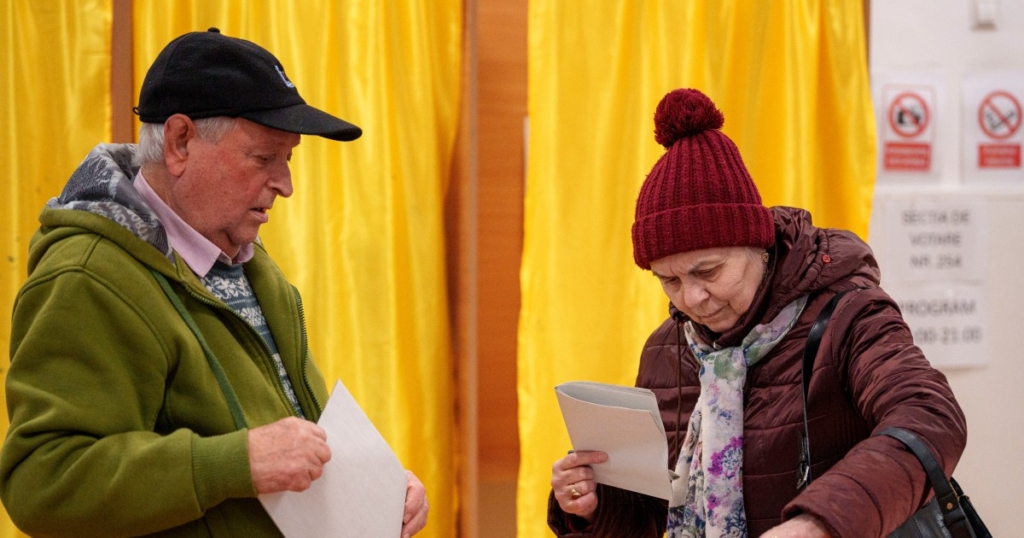Romania’s governing left-wing party is set to keep its majority in parliament following general elections, but will face off against a resurgent far-right opposition with an increased number of seats.
Incomplete election results on Sunday showed the governing Social Democratic Party (SDP) with 24 percent of the vote and the hard-right Alliance for Uniting Romanians with about 18 percent.
The National Liberal Party, a Christian democratic party and member of the SDP’s governing coalition, had 14 percent of the vote, and the reformist Save Romania Union was on 10 percent.
The election is on track to have the highest voter turnout for a parliamentary election in 20 years, with polling indicating that more than 52.3 percent of eligible voters – more than 9 million people – voted for their next prime minister and parliament, according to government figures.
Final results will not be known until election officials count ballots from the hundreds of thousands of Romanians who live abroad, who are expected to lean towards conservative parties.
The election comes at a time of growing support for ultra-nationalist and anti-establishment parties that pose a challenge to Romania’s pro-European Union and pro-Ukraine stances under the current governing coalition.
Romania is a member of NATO and has strongly supported Ukraine in its efforts to counter Russia’s invasion, including by recently announcing plans to donate one of its Patriot Missile Systems to its neighbour.
Other issues in the election campaign included Romania’s deficit, which at 8 percent of gross domestic product (GDP) is the highest in the EU.
Romanian voters last week stunned international observers by backing hard-right populist Calin Georgescu in the first round of voting for Romania’s next president.
Georgescu, 62, was predicted to win less than 10 percent of votes, but beat left-leaning reformist Elena Lasconi, 52, and Prime Minister Marcel Ciolacu, 57.
He will next face off against Lasconi in a second round of voting on December 8.
An independent, Georgescu was previously affiliated with the Alliance for Uniting Romanians and has attracted controversy with his praise of past ultra-nationalist and fascist Romanian leaders.
He has also praised Russian leader Vladimir Putin, describing him as “a man who loves his country”, and described Ukraine as “an invented state”, according to Romanian media.
Georgescu’s success has been attributed, in part, to his effective use of the video-sharing platform TikTok, where he has amassed some 274,000 followers and more than 3.7 million views.
During his campaign, he used the platform to argue that Romania, which shares a 650km (404-mile) border with Ukraine, should follow a path to “peace” and end its involvement in the war in Ukraine.
Ukraine is a former state of the Soviet Union, while Romania was a so-called satellite state, influenced by the Soviet government in Moscow.
Georgescu’s online support has come under scrutiny for unusual activity that suggested the use of bots ahead of the election by organisations like Expert Forum, a pro-democracy Bucharest-based think tank.
Lasconi has warned voters that Romania is now in “a historical confrontation between preserving Romania’s young democracy” and those who want to “return Romania to the Russian sphere of influence”.







Yorumlar kapalı.